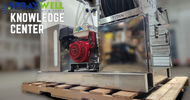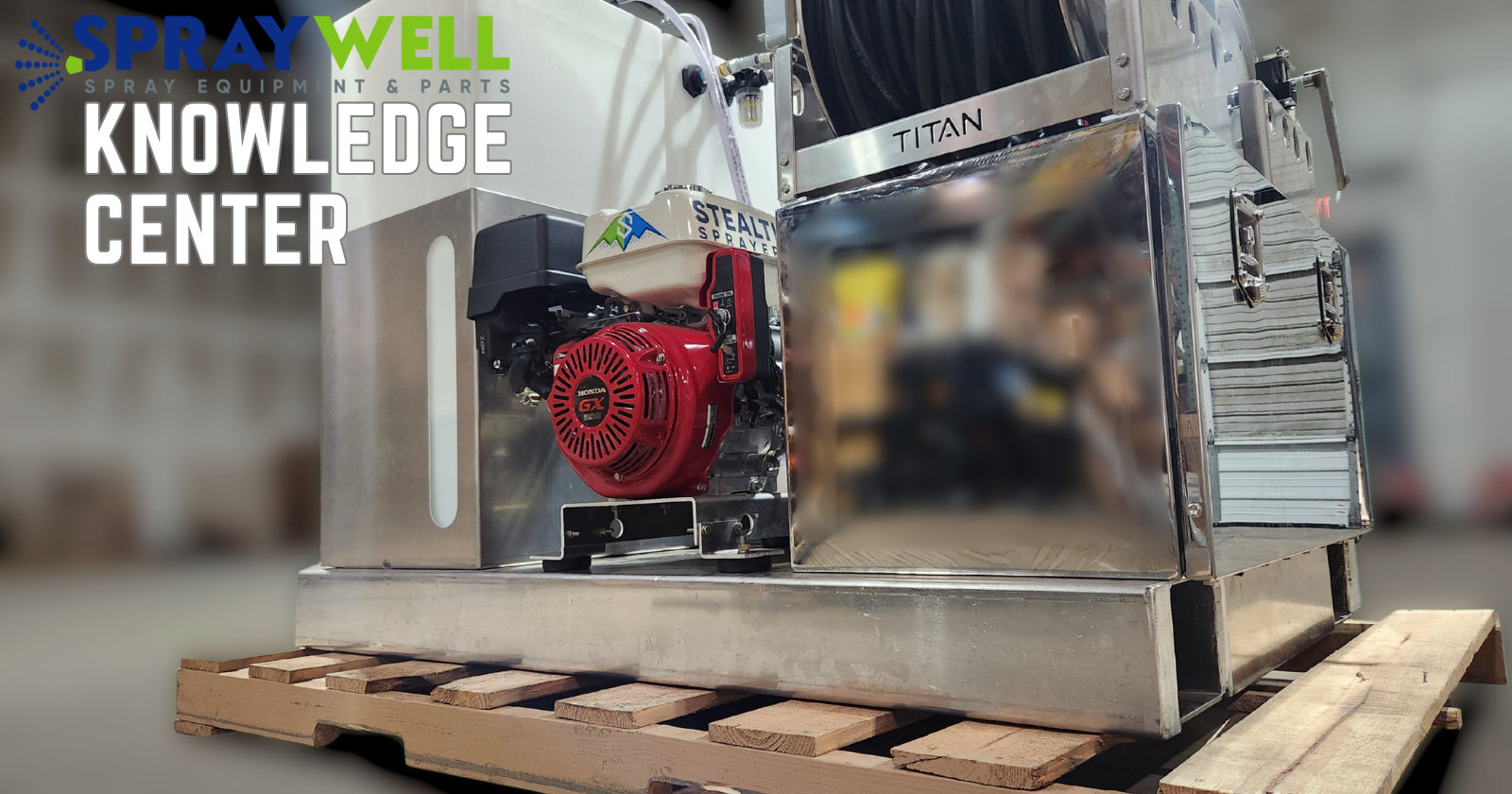How to Choose the Right Pressure Washing Equipment
09/ 8/ 2025 by Tyler
How to Choose the Right Pressure Washing Equipment
Choosing the right setup for your business can feel overwhelming without the right information. In this article, we’ll cover:
- Job Selection: The type of work you do; residential driveways, commercial properties, or fleet washing, directly impacts the kind of equipment you’ll need.
- Desired Speed: PSI and GPM determine how quickly you can complete jobs, which translates into efficiency and profitability.
- Budget: Balancing cost with long-term value helps ensure your investment pays off for years to come.
Job Selection: What Type of Jobs Will You Be Doing?
When choosing pressure washing equipment, your job type should guide your setup. Two key specs tell the story: PSI (pressure) and GPM (flow rate).
- PSI (Pounds Per Square Inch): Higher isn’t always better. In fact, most contractors we work with use low pressure (80–100 PSI) for delicate surfaces like vinyl siding, windows, and landscaping. Cranking up the pressure can damage surfaces, or worse, cause injury. PSI has its place, but it’s rarely the main factor for everyday cleaning.
- GPM (Gallons Per Minute): If PSI is about strength, GPM is about speed. A higher GPM moves more water, which means faster cleaning and greater efficiency. For example, moving from a 4 GPM unit to an 8 GPM can literally cut your job time in half. In our experience, GPM is what really drives productivity in the field.
Here’s how we break it down by job type:
- Residential Driveways & Patios: A 4 GPM unit paired with a 16-inch surface cleaner is a great starting point.
- House Washing (Vinyl, Stucco, Brick): 4–5.5 GPM machines give you enough flow for efficient rinsing while keeping pressure low.
- Roof Cleaning: A 5.5 GPM soft wash setup helps apply solutions evenly without relying on high pressure.
- Commercial Flatwork (Parking Lots, Sidewalks, Plazas): 8 GPM or higher drastically reduces time and pairs with 24–32 inch surface cleaners.
- Fleet Washing (Trucks, Buses, Heavy Equipment): 8–10 GPM speeds up rinsing large surfaces and makes multiple vehicles manageable.
- Specialty Jobs (Grease, Oil, Gum): A hot water 4–8 GPM unit cuts through residues cold water can’t touch.
For most new businesses, we recommend starting with at least a 4 GPM pressure washer. A 2.7 GPM unit can get you by in the beginning, but once you handle larger surfaces, you’ll feel the difference immediately. If you’re planning heavy commercial work, higher-GPM setups with larger engines (Honda GX630, GX690, or GX800) will keep you efficient and reliable.
Finally, think about surfaces. If concrete makes up a big part of your work, invest in a surface cleaner. A good rule of thumb: one gallon of GPM for every four inches of surface cleaner. That means a 4 GPM machine pairs with a 16-inch cleaner, while an 8 GPM handles a 32-inch. Choosing the right size avoids zebra striping and keeps results professional.
Desired Speed: How Fast Do You Want to Go?
In pressure washing, speed isn’t just about moving quicker, it’s about finishing jobs efficiently so you can take on more work (and more revenue) in the same amount of time. The biggest factor here is GPM (gallons per minute).
- Lower GPM (2.5–4): Fine for homeowners or very light commercial use. You’ll get the job done, but it may take longer. A driveway that might take 30–40 minutes with a 4 GPM could stretch over an hour with a smaller machine.
- Mid-Range GPM (4–5.5): The sweet spot for most contractors starting out. You can rinse siding faster, clean driveways in less time, and work efficiently without overspending.
- High GPM (8–10+): Serious efficiency. At these flow rates, you cut job times in half compared to a 4 GPM. Imagine finishing a commercial parking lot in a few hours instead of all day, or rinsing a fleet of trucks twice as fast. For volume-driven contractors, high-GPM rigs are a game changer.
PSI still matters, but mostly for surface type (not speed). Many pros dial down pressure and let water volume do the heavy lifting. More flow equals faster rinsing, quicker coverage, and less operator fatigue.
One rule we like to share: If you find yourself stuck on one job all afternoon, it’s probably time to step up your GPM.
Budget: What is Your Starting Budget?
Price is always a factor, but the cheapest option isn’t always the best investment. We’ve seen many contractors buy a low-cost machine, only to replace it within a season because it couldn’t keep up. That’s why we recommend thinking about your budget in terms of return on investment, not just upfront cost.
At Spraywell, our Stealth line of pressure washers is built with this in mind:
- Stealth 4 GPM Cart Models: Starting in the low $1700 range, perfect for contractors just getting started. Reliable enough for house washing, driveways, and smaller jobs.
- Stealth 5.5 GPM Gear-Drive Units: In the low $2000 range, these machines are a step up in efficiency and durability. Great for those who want to speed up jobs and handle heavier workloads.
- Stealth 8–10 GPM Skid Systems: Typically $3300–$5000+, depending on setup. A serious investment, but for commercial jobs and fleet washing, the time savings and revenue potential make them pay for themselves quickly.
The real question isn’t “What can I afford today?” but “What will save me time and make me more money in the next few years?” A Stealth skid with higher GPM may cost more upfront, but finishing jobs twice as fast often means doubling your earning potential.
Time and again, we’ve seen that contractors who invest in reliable, well-built systems spend less on repairs, get more done per day, and have the confidence to bid bigger jobs. That’s why we encourage choosing for where your business is headed, not just where it is today.
In Conclusion
Choosing the right pressure washing equipment doesn’t have to feel overwhelming. Start by matching your setup to the type of jobs you’ll be doing, make sure your GPM gives you the cleaning speed you need, and invest in a system that fits both your budget and your long-term goals.
In our experience, the contractors who see the fastest growth are the ones who plan ahead. They choose equipment not just for today’s jobs, but for the bigger opportunities coming tomorrow.
At Spraywell, we’ve spent decades helping businesses make smart investments in reliable equipment that delivers real results. Whether you’re just starting out with a 4 GPM unit or ready to step into an 8–10 GPM Stealth skid, we’re here to help you choose with confidence.
Ready to find the perfect setup? Reach out to Spraywell today, and let’s build your business together.


